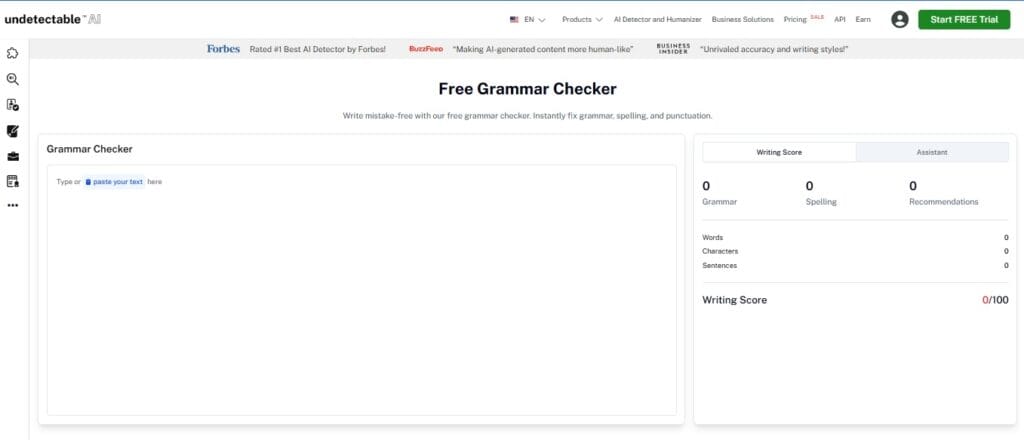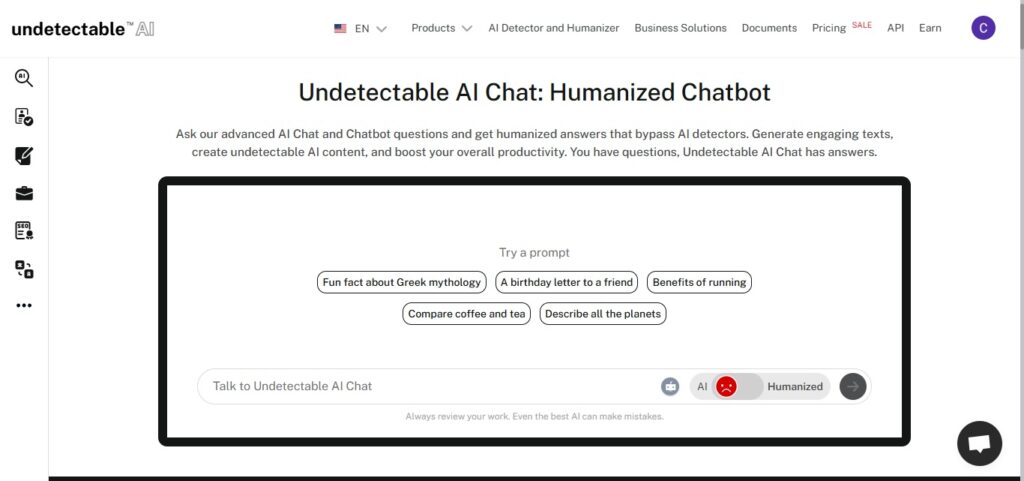Using the wrong word effects the meaning of your sentence. Or perhaps, affects it. See what I did there?
After years of learning English, we don’t think we’d make this mistake. We think we are better then that. Wait… is it than or then?
Am I losing my mind here?
That’s exactly how commonly confused words make you feel.
The worst part is you can’t really memorize them all since there are hundreds of word pairs that look or sound almost identical.
Spellcheckers also overlook them at times since both words are ‘technically’ correct, even if they don’t fit in the context.
Let’s put an end to this misery now. I have curated a list of 100+ commonly confused words in English in this blog.
I’ll also help you learn why context matters and how to remember the right word easily.
Key Takeaways
- Commonly confused words are those that look or sound alike. Sometimes, they also have different meanings depending on how they are used.
- It’s easy to mix them up because of their similar spellings or sounds. However, you can easily learn to tell them apart if you learn by explanation.
- Undetectable AI’s tools like AI Chat and Grammar Checker can help users identify and understand the difference between two or more identical pairs of words.
- British and American English variants also spell a lot of the same words differently, which makes them confusing.
- As long as you learn to notice patterns and contexts, you should have no problem remembering commonly confused words.

What Are Commonly Confused Words?
Commonly confused words are words that sound the same, look alike, or mean completely different things, even though they seem identical.
They trick you into using the wrong one because your brain recognizes the pattern before you notice the difference.
For example, accept and except look nearly identical but mean the opposite.


Never Worry About AI Detecting Your Texts Again. Undetectable AI Can Help You:
- Make your AI assisted writing appear human-like.
- Bypass all major AI detection tools with just one click.
- Use AI safely and confidently in school and work.
Affect and effect sound almost the same, yet one is a verb and the other is a noun.
Then there are pairs like compliment and complement, where both are correct words, just not in the same sentence.
Why English Learners and Professionals Confuse Them
It’s not only English learners who mix these up. Even professional writers, editors, and professionals fall into the trap.
Why? Because our brains like shortcuts. When two words sound similar or look the same, the mind automatically fills in what it thinks is right.
Another reason is that English borrows words from many different languages.
This means there are overlapping sounds, spellings, and meanings that make things even messier.
For example, principle and principal come from the same Latin root but evolved with different meanings.
How Context Changes Meaning
Context is what saves the day. It tells you which word makes sense and which one doesn’t. Take the words their, there, and they’re.
The spelling and sound are similar, but the context decides the right choice.
Their shows possession: “Their house is beautiful.”
There shows place: “The keys are over there.”
They’re means they are: “They’re going to the park.”
Without paying attention to context, all three could slip into the wrong spot and completely change the meaning of your sentence.
+100 Most Commonly Confused Word Pairs in English
Now that we know what are commonly confused words, let me show you some real troublemakers.
Below is a list of over a hundred word pairs that often trip people up.
To make things easier, I’ve grouped them into three simple categories.
Homophones (Sound-Alike Words)
Homophones sound the same but have different meanings and spellings.
These are the ones that often slip past you while writing because your ears can’t tell the difference.
Examples:
- Their / There / They’re
- To / Too / Two
- Your / You’re
- It’s / Its
- Right / Write
- By / Buy / Bye
- Hear / Here / Hair
- Flower / Flour
- Know / No
- Peace / Piece
- Pair / Pear
- Meet / Meat
- Mail / Male
- Sea / See
- One / Won
- Son / Sun
- Whole / Hole
- Brake / Break
- Plain / Plane
- Wait / Weight
- Bare / Bear
- Knew / New
- Allowed / Aloud
- Steal / Steel
- Weak / Week
- Waste / Waist
- Die / Dye
- Ate / Eight
- Knight / Night
- Stare / Stair
- Whether / Weather
- Pray / Prey
- Scene / Seen
Quick tip: Run your writing through Undetectable AI’s Grammar Checker.
It can catch homophones if they are used incorrectly and suggest the right alternatives.

Similar-Looking Words
What are some commonly confused words that even a spellchecker can’t catch?
These words look almost identical but mean totally different things.
Examples:
- Accept / Except
- Affect / Effect
- Advise / Advice
- Compliment / Complement
- Principal / Principle
- Loose / Lose
- Than / Then
- Desert / Dessert
- Stationary / Stationery
- Raise / Raze
- Beside / Besides
- Capital / Capitol
- Formally / Formerly
- Elicit / Illicit
- Farther / Further
- Lay / Lie
- Passed / Past
- Quiet / Quite
- Conscious / Conscience
- Moral / Morale
- Ensure / Insure
- Eminent / Imminent
- Defuse / Diffuse
- Brake / Break
- Personal / Personnel
- Precede / Proceed
- Prescribe / Proscribe
- Adapt / Adopt
- Assure / Ensure / Insure
- Discreet / Discrete
- Site / Sight / Cite
- Altogether / All together
- Confidant / Confident
- Allusion / Illusion
Quick tip: Build little memory aids. For instance, dessert has two “s” letters because you always want seconds. Principal ends with “pal.” Think of your principal as your “pal” at school (But can you? 😅).
Words With Context-Based Meanings
Now, some words change meaning based on how you use them.
Examples:
- Since (meaning “because” or refer to time)
- That (can point to something or link a clause)
- Fine (meaning “okay,” “beautiful,” or “a penalty”)
- Fast (meaning “quick” or “to go without food”)
- Left (meaning “the direction” or “gone away”)
- Light (meaning “not heavy” or “brightness”)
- Match (can mean “game,” “equal,” or “ignite”)
- Fair (meaning “just,” “beautiful,” or “event”)
- Bark (meaning “tree covering” or “dog sound”)
- Watch (meaning “observe” or “a timepiece”)
- Book (meaning “reserve” or “a collection of pages”)
- Change (meaning “money” or “become different”)
- Present (meaning “gift,” “now,” or “show something”)
- Object (meaning “thing” or “disagree”)
- Row (meaning “line” or “argument”)
- Park (meaning “green area” or “to stop a vehicle”)
- Spring (meaning “season,” “coil,” or “jump”)
- Point (meaning “sharp tip,” “idea,” or “indicate”)
- Trip (meaning “journey” or “stumble”)
- Can (meaning “container” or “be able to”)
- Fly (meaning “insect” or “move through the air”)
- Ring (meaning “jewellery” or “bell sound”)
- Lie (meaning “rest” or “tell an untruth”)
- Bear (meaning “animal” or “tolerate”)
- Letter (meaning “alphabet symbol” or “written message”)
- Seal (meaning “sea animal” or “something that closes”)
- Nail (meaning “metal pin” or “part of a finger”)
- Rock (meaning “stone” or “music style”)
- Bank (meaning “financial place” or “river edge”)
- Wave (meaning “gesture” or “movement of water”)
- Duck (meaning “bird” or “lower your head quickly”)
- Leaves (meaning “part of a plant” or “departs”)
- Bowl (meaning “dish” or “roll a ball”)
- File (meaning “folder for papers” or “submit documents”)
- Seal (meaning “animal” or “to close tightly”)
- Bat (meaning “flying mammal” or “sports stick”)
Quick tip: Use the AI Chat tool by Undetectable AI for explanations and distinctions when a word with multiple meanings has you scratching your head.

How to Remember the Difference Between Confusing Words
The best way to remember confusing words is to notice patterns. Yes, patterns, not memorize lists.
- Start by linking words to their meanings in a way that makes sense to you. For example, affect starts with an “a,” just like action, while effect begins with an “e,” like end result.
- Try saying short test sentences in your head to check which word fits. “I can’t bear it” sounds right, while “I can’t bare it” doesn’t.
- Context is everything. Two words can be correct on their own but wrong in the sentence. Focus on what the sentence is trying to say, not just how the words look.
- You can also keep a small note of the pairs you mix up most often. A quick glance at that list before writing can save you time later.
Use the AI Checker to evaluate how language tools interpret or generate similar-sounding words.
It instantly detects if your content includes AI-generated phrasing or misused terms, helping you confirm that every word fits the right context.
+100 Commonly Confused Words in Professional Writing
Slip-ups in professional writing are embarrassing and can make you come across as careless.
Use this list to check if you know all the right words.
- Accept / Except
- Affect / Effect
- Adapt / Adopt
- Advice / Advise
- Aisle / Isle
- Allude / Elude
- Already / All ready
- Altogether / All together
- Among / Between
- Amount / Number
- Anticipate / Expect
- Appraise / Apprise
- Ascent / Assent
- Assure / Ensure / Insure
- Bare / Bear
- Beside / Besides
- Breathe / Breath
- Bring / Take
- Capital / Capitol
- Censor / Censure
- Cite / Site
- Climactic / Climatic
- Coarse / Course
- Complement / Compliment
- Compose / Comprise
- Conscience / Conscious
- Continual / Continuous
- Council / Counsel
- Credible / Creditable
- Cue / Queue
- Currant / Current
- Defuse / Diffuse
- Descent / Dissent
- Desert / Dessert
- Device / Devise
- Discreet / Discrete
- Elicit / Illicit
- Emigrate / Immigrate
- Eminent / Imminent
- Ensure / Insure
- Especially / Specially
- Everyday / Every day
- Evoke / Invoke
- Farther / Further
- Fewer / Less
- Flaunt / Flout
- Flammable / Inflammable
- Foreword / Forward
- Formally / Formerly
- Hanged / Hung
- Hear / Here
- Historic / Historical
- Imply / Infer
- Incite / Insight
- Ingenious / Ingenuous
- Intensive / Intentional
- Its / It’s
- Later / Latter
- Lay / Lie
- Lead / Led
- Learned / Learnt
- Leave / Let
- Lend / Loan
- Loose / Lose
- Mail / Male
- Medal / Metal
- Moral / Morale
- Passed / Past
- Patience / Patients
- Peace / Piece
- Peak / Pique
- Personal / Personnel
- Perspective / Prospective
- Plain / Plane
- Precede / Proceed
- Principle / Principal
- Prescribe / Proscribe
- Quiet / Quite
- Raise / Raze
- Respectfully / Respectively
- Right / Write
- Roll / Role
- Scene / Seen
- Seat / Sit
- Sew / Sow
- Sight / Site
- Some time / Sometime
- Stationary / Stationery
- Steal / Steel
- Than / Then
- Their / There / They’re
- To / Too / Two
- Taught / Thought
- Threw / Through
- Waist / Waste
- Wait / Weight
- Weak / Week
- Weather / whether
- Who’s / Whose
- Your / You’re
+100 Commonly Confused Words in British vs American English
Do you finally understand what is commonly confused words? Wait until you see how UK and US English variants spell the same word!
| US English | UK English |
| Airplane | Aeroplane |
| Aluminum | Aluminium |
| Analyze | Analyse |
| Apologize | Apologise |
| Armor | Armour |
| Behavior | Behaviour |
| Caliber | Calibre |
| Catalog | Catalogue |
| Canceled | Cancelled |
| Center | Centre |
| Check | Cheque |
| Color | Colour |
| Defense | Defence |
| Dialog | Dialogue |
| Dishonor | Dishonour |
| Enroll | Enrol |
| Favorite | Favourite |
| Fiber | Fibre |
| Flavor | Flavour |
| Fulfill | Fulfil |
| Gray | Grey |
| Harbor | Harbour |
| Honor | Honour |
| Humor | Humour |
| Jewelry | Jewellery |
| Labor | Labour |
| License | Licence |
| Licorice | Liquorice |
| Liter | Litre |
| Maneuver | Manoeuvre |
| Meter | Metre |
| Modeled | Modelled |
| Modeling | Modelling |
| Mustache | Moustache |
| Neighbor | Neighbour |
| Offense | Offence |
| Organize | Organise |
| Organization | Organisation |
| Paralyze | Paralyse |
| Pediatric | Paediatric |
| Practice | Practise |
| Program | Programme |
| Publicize | Publicise |
| Realize | Realise |
| Recognize | Recognise |
| Rumor | Rumour |
| Savior | Saviour |
| Signaling | Signalling |
| Skillful | Skilful |
| Smolder | Smoulder |
| Specter | Spectre |
| Sulfur | Sulphur |
| Theater | Theatre |
| Traveling | Travelling |
| Traveler | Traveller |
| Ton | Tonne |
| Tire | Tyre |
| Valor | Valour |
| Vapor | Vapour |
| Checkbook | Cheque-book |
| Cozy | Cosy |
| Counselor | Counsellor |
| Defense | Defence |
| Disheveled | Dishevelled |
| Draft | Draught |
| Donut | Doughnut |
| Inquiry | Enquiry |
| Aesthetic | Esthetic |
| Fetus | Foetus |
| Fueled | Fuelled |
| Installment | Instalment |
| Judgment | Judgement |
| Curb | Kerb |
| Leukemia | Leukaemia |
| License | Licence |
| Luster | Lustre |
| Marvelous | Marvellous |
| Mold | Mould |
| Mom | Mum |
| Odor | Odour |
| Estrogen | Oestrogen |
| Pajamas | Pyjamas |
| Plow | Plough |
| Zip code | Postcode |
| Period | Full stop |
| Line | Queue |
| Rancor | Rancour |
| Skeptical | Sceptical |
| Sepulcher | Sepulchre |
| Signaled | Signalled |
| Spoiled | Spoilt |
| Story | Storey |
| Sulfate | Sulphate |
| Tidbit | Titbit |
| Toward | Towards |
| Tricolor | Tricolour |
| Unorganized | Unorganised |
| Utilize | Utilise |
| Vigor | Vigour |
| Woolen | Woollen |
| Yogurt | Yoghurt |
Try out our AI Detector and Humanizer right below!
Conclusion
I wish we could find the cheat code to learn our way through commonly confused words, but it doesn’t exist (not yet, at least!).
Until then, you have no choice other than to rely on your intuition and intellect. And I’d like to think this blog helped clear things up a bit.
But if you still find yourself confused, try Undetectable AI.
We have a Grammar Checker, an AI Chat Tool, and an Ask AI feature you can use to differentiate between different words that sound alike.
